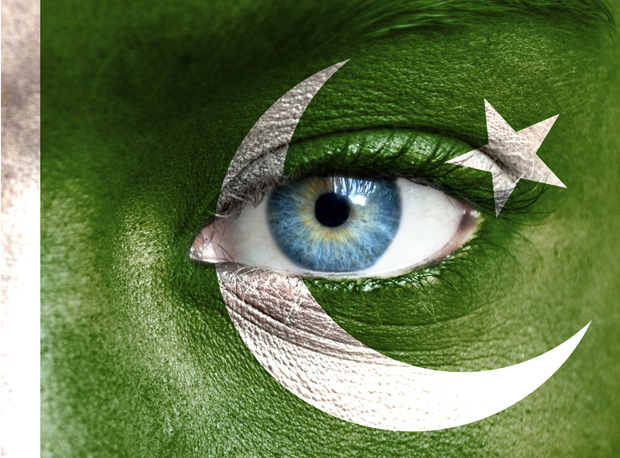Pakistan: Group declares laws against child marriage are “un-Islamic”
The Council of Islamic Ideology (CII) have pronounced that laws prohibiting child marriage in Pakistan are un-Islamic. The move has been slammed by a coalition of over a hundred Islamabad-based civili society organisations, who have labelled it a violation of Pakistani women’s and girls’ fundamental human rights. The CII is a constitutional body but its advice is non-binding on both the government and the parliament.
The CII’s declaration on early marriage follows hot on the heels of another controversial proclamation by its chairman Maulana Mohammad Khan Sheerani, saying that the current law requiring a man to seek written permission from his wife before contracting a second marriage should be amended.
Experts see these the CII’s priorities skewed at a time when the country is already reeling from an extremist onslaught for which there has been little condemnation from the same quarters. Instead, it has found fit to pick on issues that had long been settled and accepted by the Pakistani society.
“We are not conspiracy theorists, but are forced to wonder why such deliberately anti-women/girls advice comes now, 53 years after the Muslim Family Law Ordinance, 1961, was promulgated?” asked a group of civil society organisations, including Women Action Forum and Pakistan Reproductive Health Network, in a joint press release. The CII’s advice, it stated, came at a “critical juncture”, when the government was holding talks with the Taliban.
“Does the government wish to further appease and placate the bloodthirsty killers of 60,000 Pakistanis with further Islamisation and shariatisation measures? If so, why does the so-called Islamisation begin and end only with a violation of Pakistani women’s and girls’ fundamental human rights, enshrined in the unanimously endorsed constitution, and even before that, inherent in our humanity?” the statement read.
“This shows a mindset that is regressive,” says rights activist and documentary film maker Samar Minallah, who has worked extensively on highlighting traditions like Vani (women and girls given in marriage to hostile families as compensation for a relative’s crime to end feuds) and child marriage.
“It shows how Islam continues to be misinterpreted and distorted for political reasons,” Minallah continued, adding: “The shocking part is that the parliamentarians reinforce this mindset by remaining silent. It is a deliberate effort to create confusion and degrade women.”
Rafia Zakria, a lawyer and regular Dawn columnist, fears this may well legalise child abuse. She argues CII’s edict is unacceptable because “there are many Islamic scholars who have issued rulings opposing child marriage, highlighting the contractual aspect of Islamic marriage and the fact that minors cannot give consent hence making such marriages prima facie unacceptable.”
Zakaria also points out that Pakistan has ratified and signed several international treaties underscoring the necessity of protecting children especially girls. “Cumulatively it will serve to substantiate stereotypes about Pakistan as a country that cannot respect the rights of women and children, and which is oriented backwards into ignorance as opposed to forward into enlightenment.”
“Health consequences of early marriage are grave and many,” explains Dr Farid Midhet who heads the Maternal and Child Health Integrated Program (MCHIP) in Pakistan for USAID.
The adolescent girl, he says, is incapable of fully understanding and bearing the burden of pregnancy and childbirth. “Probability of maternal death and neonatal death is significantly higher in the early ages (under 20 years).” Having worked in the field and with communities, Midhet says premature births and congenital abnormalities are higher among births to young mothers. In addition, he finds, there is an increased risk of malaria, sexually transmitted diseases and cervical cancer among women who marry early.
Apart from the physiological toll early marriage takes on a young girl, the social consequences are as grave. “Early marriage denies the girl child her right to education, bonding with her peers, personality development and mature thinking. Young girls are almost always married against their wishes, or they are unable to fully understand and give consent for the marriage,” he said.
And so Midhet feels it is important for public health experts to voice their concerns by “making a case against early marriage, listing the social, health, economic and religious factors, and then approach the CII (or other scholars/institutions) to request them to declare, or at least recommend, that girls must not be married while they are in puberty, and that delaying marriage is not against Islam.”
In their statement, the civil society coalition has urged the government to abolish CII and in the meantime replace chairman Maulana Mohammad Khan Sheerani with someone who is “educated, enlightened, progressive and a real Islamic scholar”. It also demanded that the government ensure at least 50 percent of CII members are female and 5 percent non-Muslims.
This article was posted on 14 March 2014 at indexoncensorship.org

